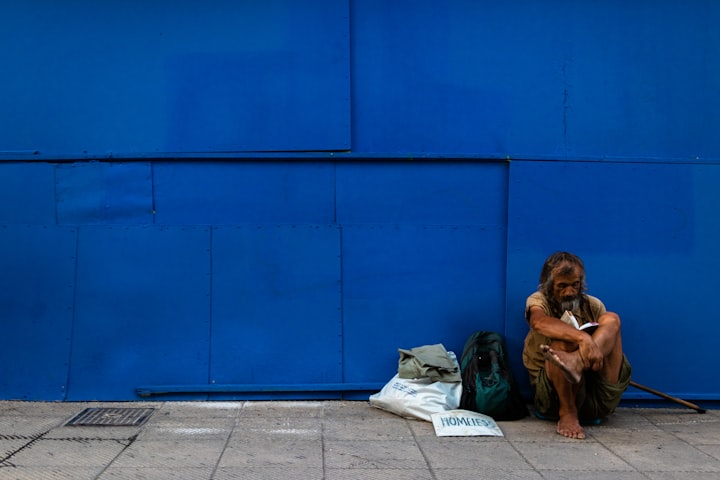
In a world where social and economic issues are deeply intertwined, it's essential to recognize the complex nature of poverty and move beyond the simplistic notion that it's solely a result of laziness or lack of motivation. By addressing the systemic factors that contribute to poverty, we can take significant steps towards building a fairer and more just society.
Poverty has long been a subject of public debate and discussion. In popular belief, there has been a prevailing notion that individuals living in poverty are responsible for their own circumstances due to laziness and a lack of motivation. The solution, according to this perspective, is straightforward: work harder, and poverty will be overcome. However, this narrative oversimplifies the intricate dynamics that underlie the experience of poverty.

The belief that poverty is primarily a consequence of individual motivation and work ethic has been especially prominent on social media platforms. Comments sections are often filled with harsh judgments and blame directed at those facing poverty. But, is this belief grounded in reality, or is it a myth that needs debunking?
In actuality, poverty is not merely a reflection of an individual's work ethic. It is a multifaceted issue, often stemming from economic systems that prioritize profit over the well-being of individuals. This fundamental concept challenges the prevailing notion that poverty is the result of personal shortcomings.
Consider the impact of economic downturns and recessions on society. These events affect countless individuals simultaneously, often seemingly at random. The root cause of these economic crises is not the laziness or lack of motivation of those affected but rather complex economic forces and shifts that are beyond the control of any one person.
Furthermore, the "Reserve Army of Labor" is a concept that plays a crucial role in understanding poverty. This term refers to the deliberate maintenance of a certain number of unemployed individuals, a practice designed to keep those who are employed in a constant state of anxiety about their job security. The ultimate goal is to keep wages low and ensure workers remain compliant. This practice is not a reflection of laziness but rather a method of exerting control and maximizing profits within the labor market.
Even those who diligently toil in low-paying jobs may find themselves ensnared in the web of poverty. The cost of living, particularly in terms of rent and basic necessities, continues to rise, while wages often stagnate. This grim reality underscores the fact that it is not an individual's work ethic that primarily determines their financial situation but rather the economic system's valuation of their labor.
It is important to acknowledge that the belief that laziness is the root cause of poverty is inextricably linked with historical issues of race and class. This notion has been used as a tool to justify systemic oppression and to enact cuts to welfare programs. However, the reality is that poverty is not a reflection of an individual's motivation or laziness. It is a consequence of an economic system that places profit above the welfare of its workforce.
In conclusion, it is imperative that we challenge these misconceptions and delve deeper into the complexities of poverty. Understanding the systemic factors that contribute to poverty and inequality is the first step toward building a fairer and more just society. By dispelling the myth of laziness as the primary cause of poverty, we can work toward a world where individuals are not judged by their circumstances but rather supported in their quest for a better life. As we dispel the myth of laziness, we should advocate for fair wages, accessible education, affordable housing, and social safety nets while addressing issues of discrimination based on race and class. Our goal should be to create a society that supports individuals in their pursuit of a better life, where everyone has an equal opportunity to thrive, regardless of their socioeconomic background.






Comments
There are no comments for this story
Be the first to respond and start the conversation.